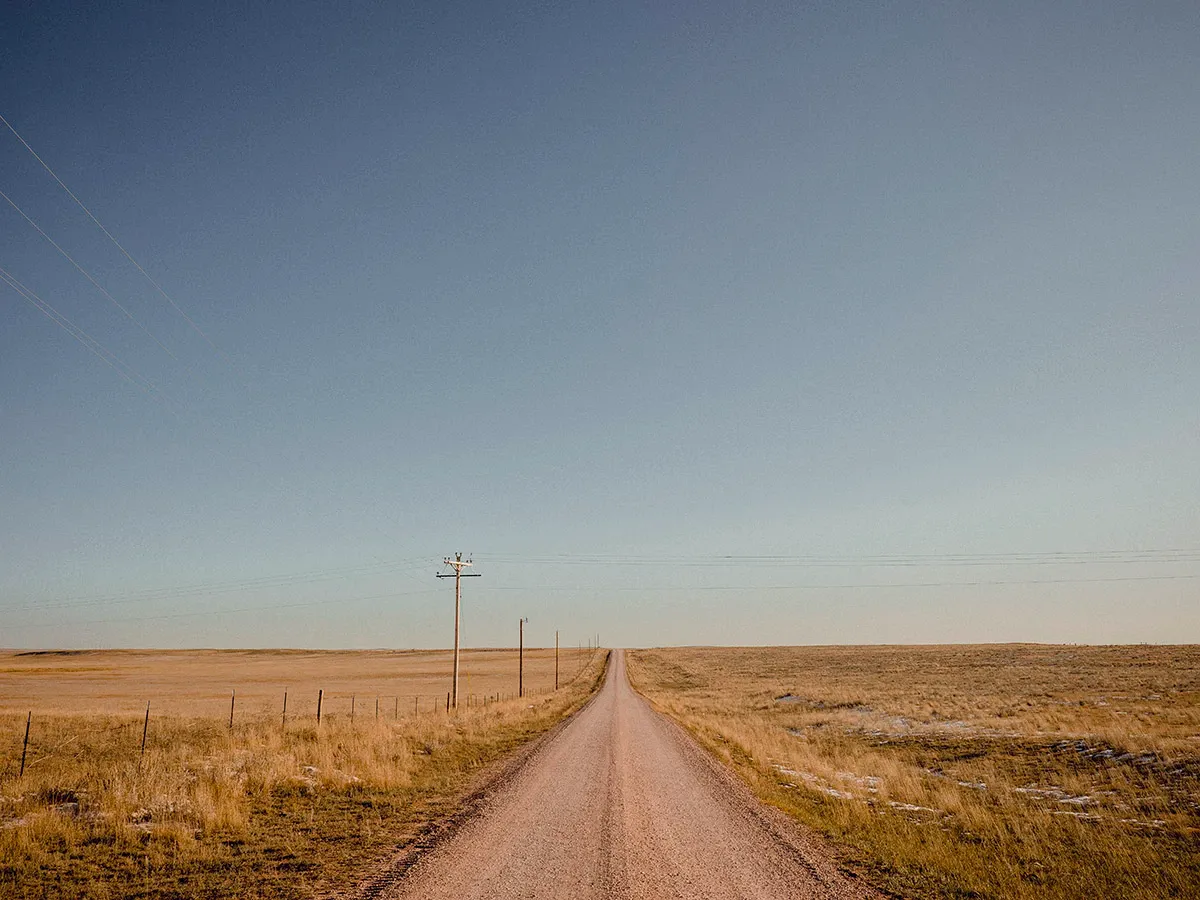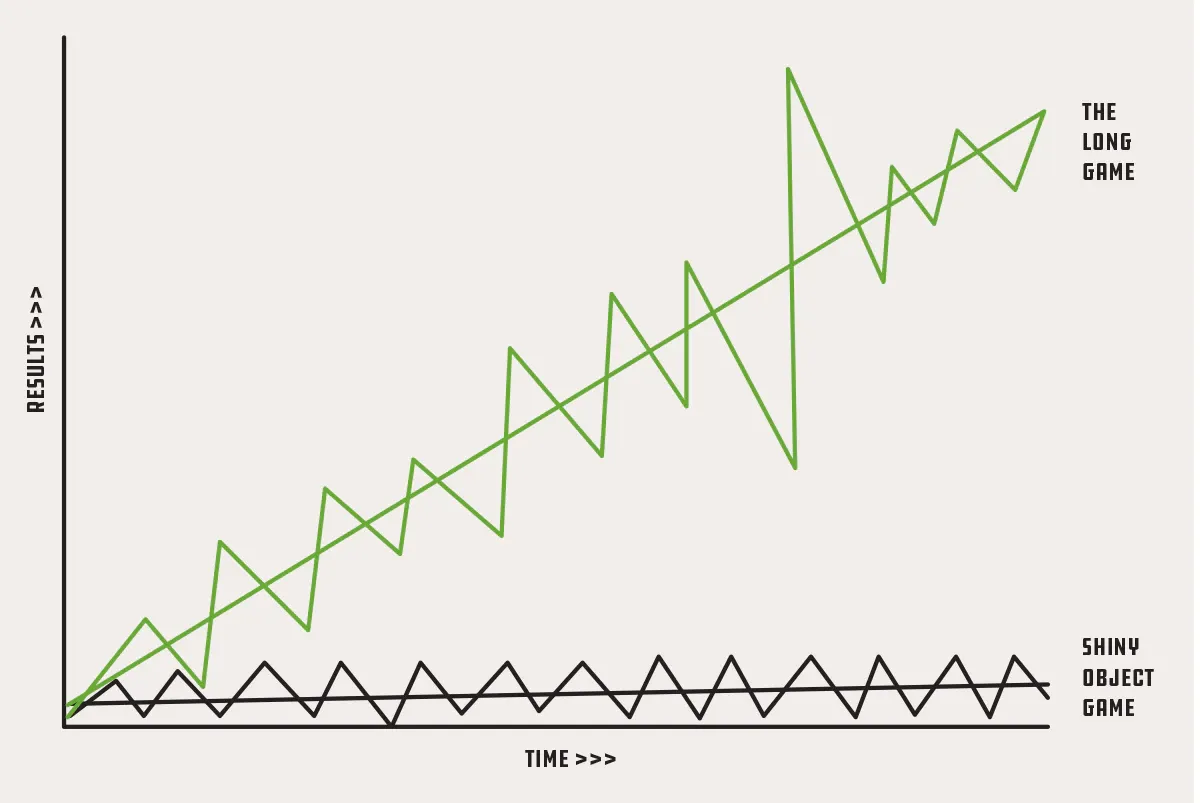Are you playing the long game?
We humans are short sighted. The now holds far more importance than the future. What's in front of us grabs our attention far more than some distant goal. At the same time, we often miss being present as our minds drift to goodness knows what else. Most everything BUT the hard work we have to do NOW?

I also talked previously about how the most important moment in your life is NOW, so why wouldn't you focus there? Well, here's one of the many contradictions to building your awesomest life.
If you don't think or plan ahead, you'll never get there. With 'there' being your full potential. Of course, you never want to peak and then slide back. Full potential is a moving target. One's work is never really done. That's the joy of the journey should we choose to embrace it. A little planning combined with a heaping dash of serendipity go a long way.
Our short-sighted brains keep us distracted from the long game. Most suffer shiny object syndrome. It's the flavor of the day or month. Shiny new idea after shiny new idea each abandoned after they get hard. Hey look! Squirrel!
Sound familiar? I know it does for me.
Getting to your full potential requires doing work NOW that has no immediate payoff. If you're familiar with those four quadrants in which we never focus on the least urgent but most important rocks because they're not yelling at us, you know what I'm talking about.
The long game means you invest in people and relationships without any expected payoff now. Or ever. You invest in projects that take you down scenic routes to the potential middle of nowhere. It's hard. It's fun. It's indeterminant. Until it isn't.

I finally get it. But in my 20s I didn't. I didn't invest in nurturing relationships. Sometimes I neglected them. Ignored them. I passed up work that seemed pointless in the moment. But that could have paid real dividends. Heck, I also ignored the internet for a few years. Imagine where I'd be if I'd been more intentional. Alas, woulda, shoulda, coulda. Dwelling on what's past won't change your future. That's also a lesson that took me awhile to absorb. When I was young, I didn't 'get' the importance of the long game. I bet many didn't and don't. We think we have all the time in the world when we're 22.
Don't beat yourself up if you've also fallen into this trap. It's human. What's in front of us NOW always commands the most attention. It's why those notifications from your phone command your attention too. Pings and dings rule the day. Or at least your attention. You attention always goes to what's immediate and loudest.
Have you ever read about a lice infestation and your head starts to itch. Or some nasty bedbugs and then scratched your legs? Why? It's where your attention goes. In fact, as long ago as 1908, it's been shown that medical students start experiencing the symptoms of the diseases they're learning about. Even after being told by professors they would.
Just last week I had a mild headache for a couple of days. I immediately revisited the COVID symptoms list and wondered if I had it. Even though my chances are low given I'm vaccinated and haven't been in close confines unmasked. The real culprit? Not eating the best for a few days and it caught up with me. I had no fever and once I adjusted my diet back the headache went away. Yet the constant news reports of the Delta variant flaring up raises my alert to COVID and its symptoms. Of which I wouldn't have thought twice before.
Which gets me back to how you can train yourself to focus on the long game. What's required is curiosity. You have to want to explore. You have to want to learn. Even if you don't know where it's leading you right now. You have an inkling. An itch. Scratch it. Dive into the rabbit hole until you've scratched that itch. Until there's nothing more to uncover. Or if you've reached a dead end. Then you go down the next.
Robert Cialdini, known for his book Influence, wrote a follow up called Pre-suasion. In it he details how the experiences and messages BEFORE the call to action influence our response. Turns out we are more influenced than we realize by things that happen before we're asked. As a result, we can be manipulated into action. That's simply how our brains work.
An example he cites is that of a political candidate running for Mayor. Crime is drastically on the rise and the candidate is tough on crime. If they're approach is incarceration, they'll use a metaphor of a wild beast on the loose. What do you do with a wild beast? You lock it up. Contain it. Thus you'll be more receptive to locking up the criminals.
Conversely, if the candidate believes that joblessness and homelessness is the cause of crime, they'll believe in solutions that alleviate such. Solutions that create jobs get people off the streets. The metaphor here is that crime is like a virus. You need to treat the symptoms. You need to get at the root cause. Just like a virus.
See how different? Hard to believe?
Over and over he shows how where our attention goes, our decisions go. Subtle things influence our work. He teaches at a University and discovered that when he was writing from his campus office desk with a view to the hallowed buildings of learning, he wrote academically.
When at home in his office filled with his books, he wrote more casually. For a non-academic audience. His environment influenced his style.
The takeaway is to consider where you do your work. And where you do your best work. Be intentional about your surroundings and see how your work changes. See how your productivity changes. Simple shifts can have dramatic impacts.
There's something else he tells us we can do to thwart distractions. We can create IF-WHEN-THEN plans. If, for example, you're easily distracted from work by Wordscapes on your phone, when you reach for your phone to quickly play a few rounds, then you remind yourself it's a cue to refocus on the task at hand. Or maybe the thing you do is take a quick walk around the block to get re-entered. You could also implement a reward to play AFTER another 30 minutes of work. By then the urge may have subsided.
Here's one that's food related. If you're at the grocery store and you're hungry and all of those beautifully packaged processed foods are beckoning, then you stick to your list of what you came for. If it's not on your list, then you don't buy it.
None of us can predict the future. But investing in yourself, your relationships every day in some small way is playing the long game. Find a way to be in the moment WHILE embracing what's possible tomorrow. Look at that as an art form. Even a game.
Think of it like planting seeds. You bury these little things in the dirt and magic new growth appears.
